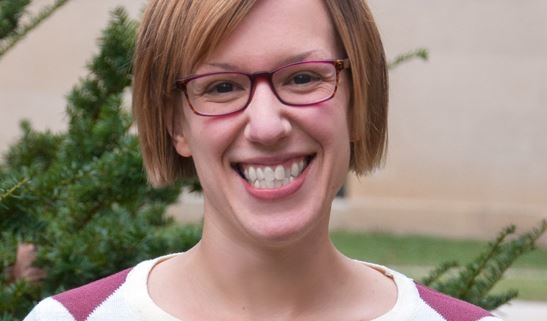Spotlight on The Democracy Group
The Democracy Group is a consortium of podcasts founded in March 2020 by Jenna Spinelle, Communications Specialist for the McCourtney Institute for Democracy at Penn State, who also co-hosts the Institute’s podcast, Democracy Works.
What was the motivation behind forming The Democracy Group?
The McCourtney Institute started the Democracy Works podcast in 2018. We created The Democracy Group in March of 2020 as a structure for cross-promotion. In the podcast world, cross-promotion is a big thing. The best way to find out about a podcast is by hearing an ad for it, or hearing someone else recommend it on another podcast. I’d been doing a lot of one-offs partnering Democracy Works with other shows and wanted to find a way to put some structure and process around promotion. You know, rising-tide-lifts-all-boats sort of thing. The second reason we launched it is that there’s this whole landscape of organizations tied to democracy reform, news organizations like The Fulcrum, and groups like the Bridge Alliance. And I noticed there was no audio component to any of them.
Is there a unifying principle that defines what shows you take on as a good fit for The Democracy Group’s network?
It definitely has to be focused on the themes of democracy and civic engagement and civil discourse. And educational in nature, so not like political punditry. There are lots of podcasts out there that do that, and certainly nothing against them. But we’re really trying to be educational for people who want to take a deeper dive beyond the headlines or sound bites you hear on cable news, to really get at the heart of—frankly, what’s not working so well in our democracy. And more importantly, how we can fix it, how we can all work together to make things better. Different podcasts take different perspectives. But if you take the network as a whole, I think we try to represent the variety of the political spectrum.
Can you give us an example of the range of podcasts?
There are several shows that are produced by universities in the network, so they’re very academically focused. I would put Democracy Works in that category. We have different political perspectives, like In the Arena from the McCain Institute, and Our Body Politic, which looks at the experience that black women have in our democracy, and 70 million, which looks at criminal justice reform. Shows like Let’s Find Common Ground tends to bring in a variety of different political perspectives. Our shows recognize the range of all these various systems and things that go together to make our democracy and look at it through different lenses.
How many podcasts have you done for Democracy Works, and what’s your podcast’s lens?
We’ve done 175 episodes, give or take, usually weekly. The McCourtney Institute’s motto is that we’re partisans for democracy. That means we don’t take a side in terms of Republican or Democrat—in fact, I don’t know that it’s always helpful to think of things in those terms. We look at it like, How can we use politics as a way to strengthen our democracy? I think sometimes there’s this perception that in order to really make progress, you have to be completely nonpartisan. And I think we would say that that’s not exactly the case. You just have to figure out how partisan interests see themselves as legitimate opposition, and that democracy is the continual struggle between those competing interests. Sometimes one party wins, sometimes the other wins. But as long as you recognize each other as legitimate, that’s really democracy working at its best.
How do you determine if a show is right for The Democracy Group?
In terms of looking at new members, I think it’s about a landscape of perspectives. What are they bringing to the table that we don’t already have? We’ve also done some listener surveys and focus groups with our subscribers, and one of the things that we’ve heard is that they like shows that feature people who are experts, whether they’re academics or practitioners or policymakers or politicians. And I think it should be a two-way street. What can your organization bring to our consortium? And what can we bring to them?
Do you have any new projects in the works, COVID permitting?
We’ve been working to create resource guides on topics like gerrymandering and misinformation. Those are all available on our website. And we are working with external partners to help bring their expertise to our audience and integrate content for people in other formats. We’re also starting to do some virtual events. We’re doing one on August 24th at 4 p.m. about the promise and peril of free speech in podcasting. We’re always looking for new topics, and the landscape is endless.
Common Ground Committee’s bi-weekly podcast, Let’s Find Common Ground is part of the Democracy Group. You can learn more and listen HERE.





